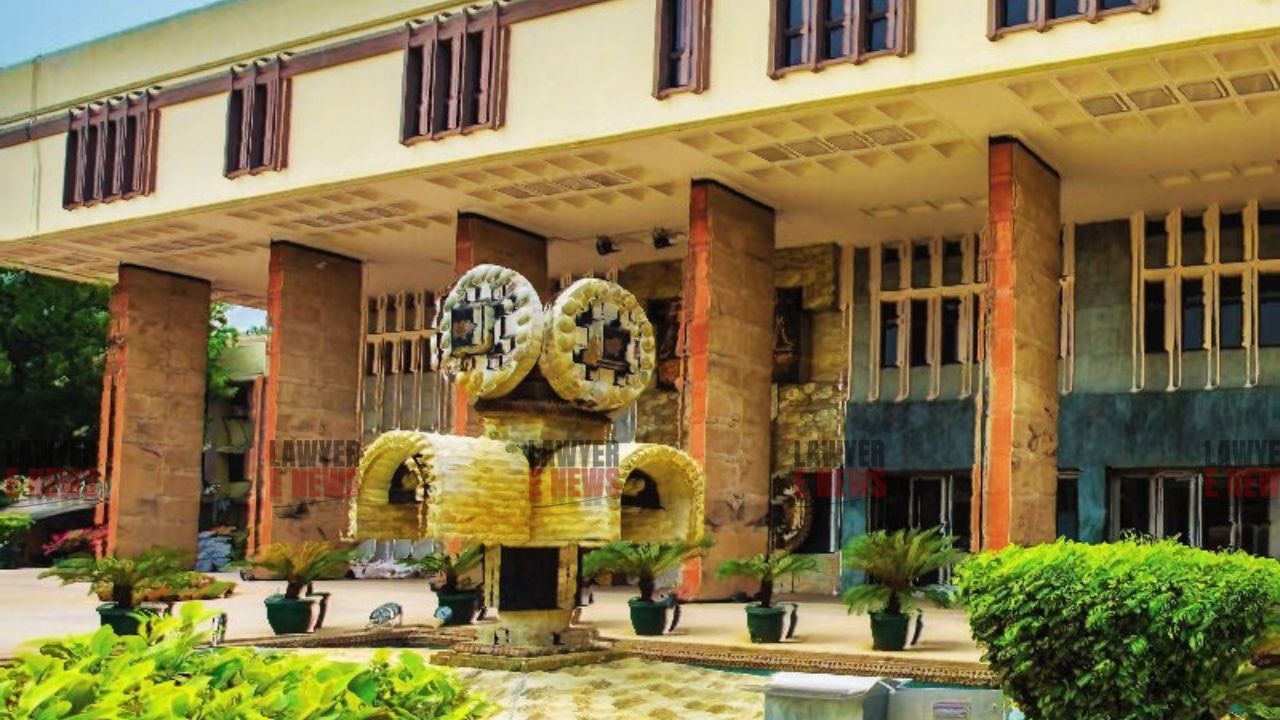-
by Admin
15 February 2026 2:36 AM



Delhi High Court quashed a notice issued under Section 148 of the Income Tax Act, 1961, to reopen the assessment for Discovery Communications India for Assessment Year (AY) 2011-12. The Court ruled that the notice was invalid as it was issued without fresh tangible material and constituted a "mere change of opinion" by the Assessing Officer (AO). The original assessment had already been completed under Section 143(3), and the Court emphasized that reopening beyond four years required evidence of the assessee’s failure to fully disclose material facts, which was absent in this case.
Discovery Communications India, the petitioner, is involved in the distribution, advertising, and production of educational and entertainment programming. For AY 2011-12, the petitioner filed its tax return on November 30, 2011. The assessment was initially scrutinized and completed by the AO under Section 143(3) of the Income Tax Act, and further proceedings, including transfer pricing adjustments, were reviewed by the Dispute Resolution Panel (DRP). The final assessment order was passed on October 30, 2015.
On March 31, 2018, the AO issued a notice under Section 148 seeking to reopen the assessment, alleging that certain expenses related to the Discovery Appreciation Plan (DAP) and production and translation costs had been wrongly allowed. Discovery Communications India challenged this notice in the Delhi High Court, arguing that it was issued beyond the four-year limitation period and was based solely on information already available in the original assessment, constituting a change of opinion.
Reassessment Beyond Four Years – Requirement of Failure to Disclose:
The Court noted that under the first proviso to Section 147, a notice for reassessment issued beyond four years requires a clear demonstration of the assessee’s failure to fully and truly disclose material facts necessary for the assessment. The Court observed that the AO's reasons for reopening did not indicate any undisclosed or new material facts. Rather, the reasons relied entirely on information already available in the AY 2011-12 records.
"There is no whisper, what to speak of any allegation, that the assessee had failed to disclose fully and truly all material facts necessary for its assessment," the Court emphasized [Paras 16, 17, 24, 26].
Change of Opinion – Invalid Ground for Reopening:
The Court reiterated that a mere change of opinion cannot justify reopening an assessment, especially when the original assessment has been concluded under Section 143(3). Citing CIT v. Kelvinator of India Ltd. and CIT v. Goetze (India) Ltd., the Court underscored that reassessment based on a change of opinion is an abuse of power and amounts to an impermissible review of the earlier assessment.
"The concept of 'change of opinion' is an in-built test to check abuse of power by the Assessing Officer," the Court noted, reaffirming that Section 147 does not allow the AO to reopen an assessment merely due to a change of stance on previously examined facts [Paras 22, 24, 27].
Absence of Fresh Tangible Material – Reliance on AY 2012-13 Records:
The AO’s reasons for reopening relied on assessment details from AY 2012-13, where similar expenses for DAP and production/translation were allowed. The Court held that this reliance on subsequent assessment years without new tangible material for AY 2011-12 rendered the reassessment notice invalid.
Referring to prior decisions in A.T. Kearney India Ltd. v. ITO and Ultra Marine Air Aids (P) Ltd. v. IAC, the Court highlighted that reassessment notices are void when based on reasons that cease to exist or when the foundational facts have already been settled in later years [Paras 18, 29].
Alternative Remedy – Appropriateness of Section 263 Invocation:
The Court noted that if the AO believed there was an error or insufficient verification in the original assessment, the appropriate remedy would have been a revision under Section 263, rather than reassessment under Section 147. The Court pointed out that Section 263 allows for revisions in case of incorrect applications of law or insufficient inquiry by the AO.
Citing CIT v. Usha International Ltd., the Court stated, "If the AO incorrectly or erroneously applies the law or comes to a wrong conclusion and income chargeable to tax has escaped assessment, resort to Section 263 of the Act is available" [Paras 20, 27].
The Delhi High Court quashed the notice issued under Section 148 on March 31, 2018, and set aside the reassessment proceedings for AY 2011-12, holding that:
The reassessment was based on a mere change of opinion without fresh tangible material.
There was no failure by the assessee to fully and truly disclose all material facts, as required under the first proviso to Section 147 for reopening assessments beyond four years.
The appropriate remedy, if any, should have been a revision under Section 263 and not reassessment.
The Court allowed the petition, stating: "In view of the aforesaid discussion, we are unable to sustain the impugned notice under Section 148 dated 31.03.2018. As a result, the impugned notice dated 31.03.2018 as also the proceedings initiated pursuant thereto are set aside" [Paras 30, 31].
The Delhi High Court’s judgment underscores the strict requirements for reopening assessments beyond four years, reaffirming that an assessment cannot be reopened on the grounds of a mere change of opinion. The ruling reinforces taxpayer protections against arbitrary reassessments and reiterates the necessity for the AO to present fresh tangible material when attempting to reassess completed assessments.
Date of Decision: November 8, 2024
Discovery Communications India v. Additional Commissioner of Income Tax, Special Range - 3, New Delhi
